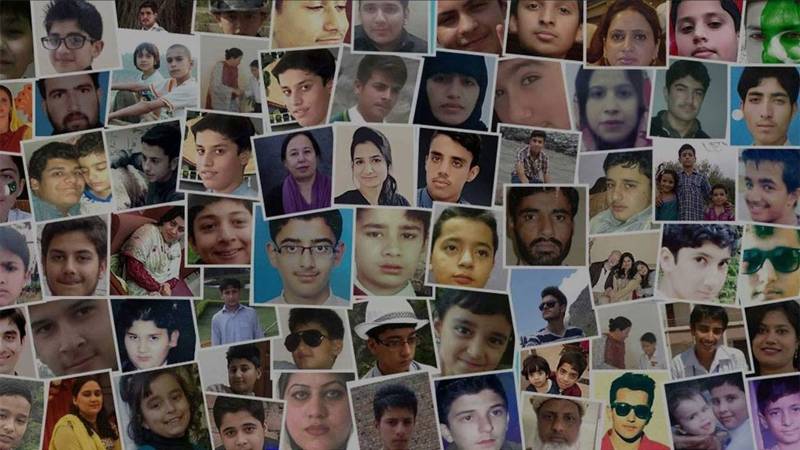
Voltaire famously upheld reason, rejecting arbitrariness. He refuted the belief that events in time and history – the cosmos, culture, language, wars, earthquakes, floods, famines and pestilences – have a foreordained purpose and design. He was a firm believer in human reason, free will, individual and social responsibility.
147 persons, out of which 132 were small children, were gruesomely murdered by terrorists on 16 December 2014 at the Army Public School, Peshawar. Another 16th December has passed by. Nine years have elapsed without enforcement of full accountability, giving the depraved impression that we too are wedded to fore ordainment, believing that the incident had to occur and couldn't have been avoided .
From this follows the indefensible concept that no one was responsible or accountable for the dastardly act. The bleeding heart of the mother of a tender dead child finds to this day no healing!
Since the last 75 years, our attitude – individually and collectively – towards avoidable upheavals experienced since 1947, is very close to what the master of the Enlightenment so vehemently rejected in logic, reason and rationality.
Preordainment refutes free will and discards the notion that humans are rational beings who carve out their own fortunes rather than being mute and sterile subjects of a pre-written destiny.
To uphold preordainment is to dismiss and reject free will, human responsibility and accountability, foreclosing avenues for self-improvement and ensuring that the mistakes of the past are not repeated.
As if in helpless acceptance of fate, society and state seem to be afflicted by heartless unconcern, remaining unable to answer the tearful questions of the crying mothers: who took my child?
Who was responsible, and what was done to bring justice to the homes and souls of our bereaved?
But this was not the first of the many mishaps. The litany is long: the language issue of the early 1940s, the dismissal of the NWFP government on 22 August 1947, the hanging in cold deception of the sons of Nawab Nauroz Khan Zehri in 1959, the judicial murder of a prime minister who gave the country its only enduring Constitution, the 1971 East Pakistan fiasco, policies that led to initiation of sectarianism, jihadism and militancy, the 1999 Kargil debacle and the more recent political experimentations.
If history is the unfolding of a blind force or will, unshaped or uninfluenced by human endeavour, then it is but a small step to moulding history into what one wants it to appear.
To ascertain the facts and affix responsibility for the APS incident, two judicial actions ensued. The Supreme Court took sou moto notice and also appointed a Peshawar High Court judge to head a Judicial Commission. In its 500-page report submitted to the CJSC in July 2020, the Judicial Commission Report indicated that 27 persons were involved in the planned attack, out of which 9 were killed, 12 arrested and 6 disappeared.
The crux of the Report attributed the incident to a grave “security lapse,” but astonishingly discovered that the security guards had been reduced and there were also issues of non-compliance with places of duty.
The Judicial Commission, by restricting its scope to security failings, abjured its responsibility to try delving into and ascertaining policy and strategic antecedents which created the circumstance leading to militancy. Then Chief Justice of Pakistan Gulzar Ahmed did hint at this issue in his observation in the suo motu proceedings:
“Security agencies should have been aware of the planning and execution of such an attack,” – but stopped short of enquiring into the real reasons why Pakistan has been under terrorist attacks ever since it joined the US war on terror in September 2001, with the formal establishment of the Tehrik-e-Taliban Pakistan (TTP) in 2007.
During the SC hearing, the parents of the deceased children had pleaded that cases should be registered against the relevant military as well as political authorities that were serving in 2014. Upon the query of the Chief Justice as to whether the demand of the parents had been brought to the notice of the PM, the Attorney General stated that these persons had not been assigned any role by the Inquiry Commission insofar as the incident was concerned, nor had anything adverse been stated against them. The answer was: These persons had been held only “ morally responsible.” Moreover, it was stated:
“We admit all our follies but FIRs cannot be lodged against higher authorities without any basis.”
A lot of apparent huff and puff was expended in the august chambers of the court but the agony and hurt of the bereaved families could not then be assuaged – and it still remains that way. The then Chief Justice made a trenchantly revealing observation: “It is a pity that no one has informed about who was responsible.”
The parents of the dead children listened in silent awe to the CJ's remarks:
“Pakistan has always faced the problem that in any incident those at the lowest levels are arrested while no questions are asked about the big fish.”
Nine years down the road, after questionable attempts at a patch-up, armed militancy is on the ascent. Each new death and each effort at rapprochement with the killers brings back a tear expressed in this poem, “A Tear on Memory’s Stone Impressed.”
The gendarme
Salutes
And lays
Yellow flowers
On your tiny barricades
Of small desks and tables,
Soiled red cakes
Amman tears
We shed
We were not
Ashamed
You couldn’t understand
With your innocences

